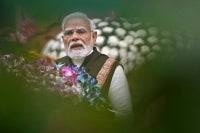Malaysia's cashless revolution: challenges, trust, and the road ahead

SHAH ALAM - In the pursuit of a cashless society in Malaysia, challenges loom, particularly in rural areas, where infrastructure and regulations must undergo significant enhancements to accommodate digital transactions.
This was the contention from economist Dr Ahmed Razman Abdul Latiff of the Putra Business School who remarked that the dependence on cash remains deeply ingrained, with studies showing that 70 to 80 per cent of the population still relying on physical currency.
“Most of the population in rural areas despite having mobile phones, it was very basic and lacked the capabilities to utilise the cashless applications, leading to them only using cash for their activities.
“The introduction of 5G was only applied to certain areas and it did not cover all areas not incentivising them to use different devices,” he told Sinar Daily.
Razman pointed out that the shift toward cashless transactions was currently centered in urban areas, with consumers keeping a wary eye due to the recent increase in scams and other theft trends
“Those using the systems outside of the cities are still highly dependent on cash and we must understand that Malaysia’s population live not only in urbanised areas.
“There is still some perception or belief that we can lose money easily through e-wallets or devices through scams, some have developed a lack of trust towards digital systems,” he said.
He stated that the initial adoption of the system would primarily focus on urban areas, with the working population being the first to embrace it.
“The working population would adopt the system first as they were exposed to the system however, this would create a situation where it would not be introduced uniformly across all demographics.
“All parties involved can benefit from cashless transactions from retailers, staffs and consumers with retailers providing more options for customers to perform transactions,” said Razman.
This will lead to more customers and, he added, reduced the possible issues of not having cash as an excuse not to purchase products along with creating more secure environments with less cash in facilities or properties.
To the uninitiated, cashless payment methods would establish a system in which retailers only need to cover system maintenance costs, eliminating the necessity for additional steps to ensure money deposition.
Naturally, a cashless system would reduce the instances where banks need to pay for cash transport services and make Automated Teller Machines (ATMs) less necessary in specific areas.
Cashless transactions were shoved into a notoriety over the past weeks following the imposing of a transactional charges for QR payments with critics argued was a tone-deaf bid from fintech companies trying to squeeze more profits from the masses.
However, Razman argued against such a notion, deeming that it does not make sense given how such charges was not how fintech companies get their income.
“They will not make much over such transactions, most of the income would be for landing charges through their potential loan programmes, consultation, or advisory services.
“Banks must figure out how to ensure that such matters involving financing would have customers come to banks rather than fintech companies that are offering the same methods with more convenience,” Razman believed.
And if the banks were to fail in this aspect, he likened it as a “game over” for them.
In this sense, however, Malaysia is still in a transitional phase.
“When we observe China, they have streamlined their focus to just two payment modes, AliPay and WeChat Pay. In contrast, Malaysia offers a plethora of payment methods,” Razman observed.
For economic efficiency, he added, it might be beneficial to move toward adopting two or three key payment platforms. These companies don't solely generate income from purchases but also engage in fintech activities such as lending and investing.
“The world is moving towards efficiency and conducting business which will be against the traditional banking system. There may be a possibility for banks to convert and join the bandwagon and provide such services themselves or taking over fintech companies.
“There could also be a push towards tighter regulations ensuring that major companies survive creating older business models (like banks) having to be competitive and create easier access to loans, buy now and pay later schemes and such,” he said.
Trust is also a critical factor in encouraging the adoption of cashless payment methods.
If consumers can't trust a platform or feel that their protection isn't guaranteed, they may revert to using cash, said Razman.
A case in point, was how some are finding ways to manipulate payment receipts, causing retailers to be cautious about certain online payment methods.
Download Sinar Daily application.Click Here!















